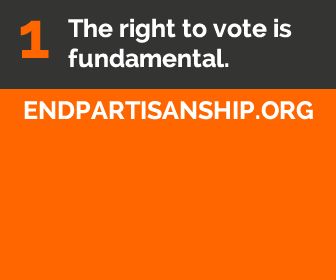GOP Leaders Want Even More Control over Picking Nominees

CNN reported that leaders in the national Republican Party have joined together in closed-door meetings to discuss new rules that would streamline the presidential nomination process and give the RNC more control over who eventually becomes the party's nominee.
Along with condensing the primary calendar and penalizing states that try to bypass the primary and caucus election schedule the Republican National Convention wants, the 17-member subcommittee is also considering reducing the number of debates to a handful of RNC-sanctioned debates. Some members of the RNC also want to have greater power in hand-picking which journalists moderate these debates.
While many will agree that the number of debates in 2012 was a bit excessive, many Republicans believed that it gave fringe candidates too much exposure while hurting the eventual nominee's candidacy. They believe Mitt Romney was forced to espouse certain conservative ideas that later hurt him in the general election.
By limiting the number of debates, the RNC will have more control over who ends up the nominee because they can limit the face time (read: time in front of voters) of candidates they do not have confidence in.
Want Open Debates?
Included in proposals for limiting the debates is a new rule that would penalize candidates for participating in non-sanctioned debates by eliminating a third of their delegates at the national convention.
Concerning the penalties for any state that wants to jump the order of the approved primary and caucus schedule, the RNC is considering an amendment to their rules that would cut the number of delegates allowed to represent a state at the national convention to 9 delegates or one-thrid of a state's delegates -- whichever number is lower. Unfortunately, states at the back end of the schedule receive little to no attention from the media or candidates.
According to one member of the subcommittee, this would be a "death penalty" for a state. The 99-member delegation of Florida, for example, may as well be completely eliminated if the state wanted to have its presidential primary at an earlier date than their order in the approved schedule. Other amendments to the rules include mandating that some winner-take-all states, specifically those whose primary or caucus is in the first two weeks of March, proportionately award their delegates.While members of the subcommittee say the proposals are meant to strengthen grassroots campaigns and give the eventual nominee a better chance in November, it also highlights just how much control the party has over the primary election process and the selection of who will eventually be on the general election ballot.
The Republican Party is a private organization and the purpose of the primary process is to pick the nominees of private organizations. However, how is it that a private organization -- specifically a small handful of people -- has so much authority over elections paid for by taxpayers? Perhaps a more important questions is, why are public funds used to pay for the activities of private organizations?
Streamlining the nomination process of its candidates and limiting the voice of its members is the prerogative of a private organization. It is reasonable to say that private organizations should have control over the nomination process of its own candidates, but not be at the expense of taxpayers. If the Republican Party wants so much control over their primary elections, the organization should pay for the elections.





